Blog Layout
Fr. Oscar Pratt
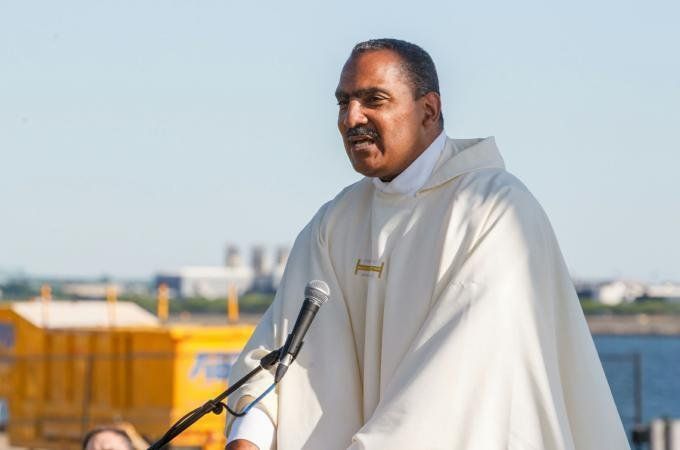
Father Oscar Pratt is the pastor of our sister parish in Roxbury, St. Katharine Drexel. He was one of the keynote speakers at this year’s Archdiocesan Social Justice Convocation on racism earlier this month. As an African American priest, Fr. Oscar is eminently qualified to address this topic because of his own life experiences as a Black man in a largely white Church.
He was ordained in 1996 with nine other men, one of whom was a native of Nigeria. Following ordination, the newly ordained were invited to the Cardinal’s residence for an individual conversation with Cardinal Law. He reminded Fr. Oscar that he had been ordained to serve the whole Church. The same statement was made to the other Black priest but not to the other 8 priests. In recounting this incident, Fr. Oscar gently invited this year’s Conference attendees to appreciate the not-so-subtle racism that exists in the Catholic Church. It was the right thing to say, said Fr. Oscar, but addressed to the wrong people.
Since the killing of George Floyd this summer, the sin of racism has been unmasked as a clear and present danger to our body politic. And, as Fr. Oscar pointed out, it is a sin that festers within our own Catholic community, as well. Fordham Professor Jeannine Fletcher Hill, the other keynote speaker, dramatically demonstrated the implications of systemic racism that not only helped to build our nation but also helped build the physical structures of our present Catholic Church.
White supremacy may be a concept that many of us may not understand. Reluctance to admit that it exists is what makes conversation about racism very hard for white people. Lamenting the racist past of our own Church, Professor Hill underscored the fact that white Catholicism has benefitted tremendously from white Catholic supremacy.
Before the Civil War Catholic institutions were major slave owners in our country and abolitionists were criticized in Catholic publications like The Boston Pilot, our diocesan newspaper. The Catholic Church, like the rest of our country, has been slow to recognize the pernicious impact of racism on Black men and women in our present day. Racism is not a problem for Black people who are its victims. It is a problem for white society which fails to recognize and appreciate its pervasive and destructive impact on what should be our beloved community.
Kudos to our Archdiocesan Social Justice Ministry for the courage to invite us to face this question honestly as a step toward eradicating racism in our day!
God Bless! Msgr. Paul
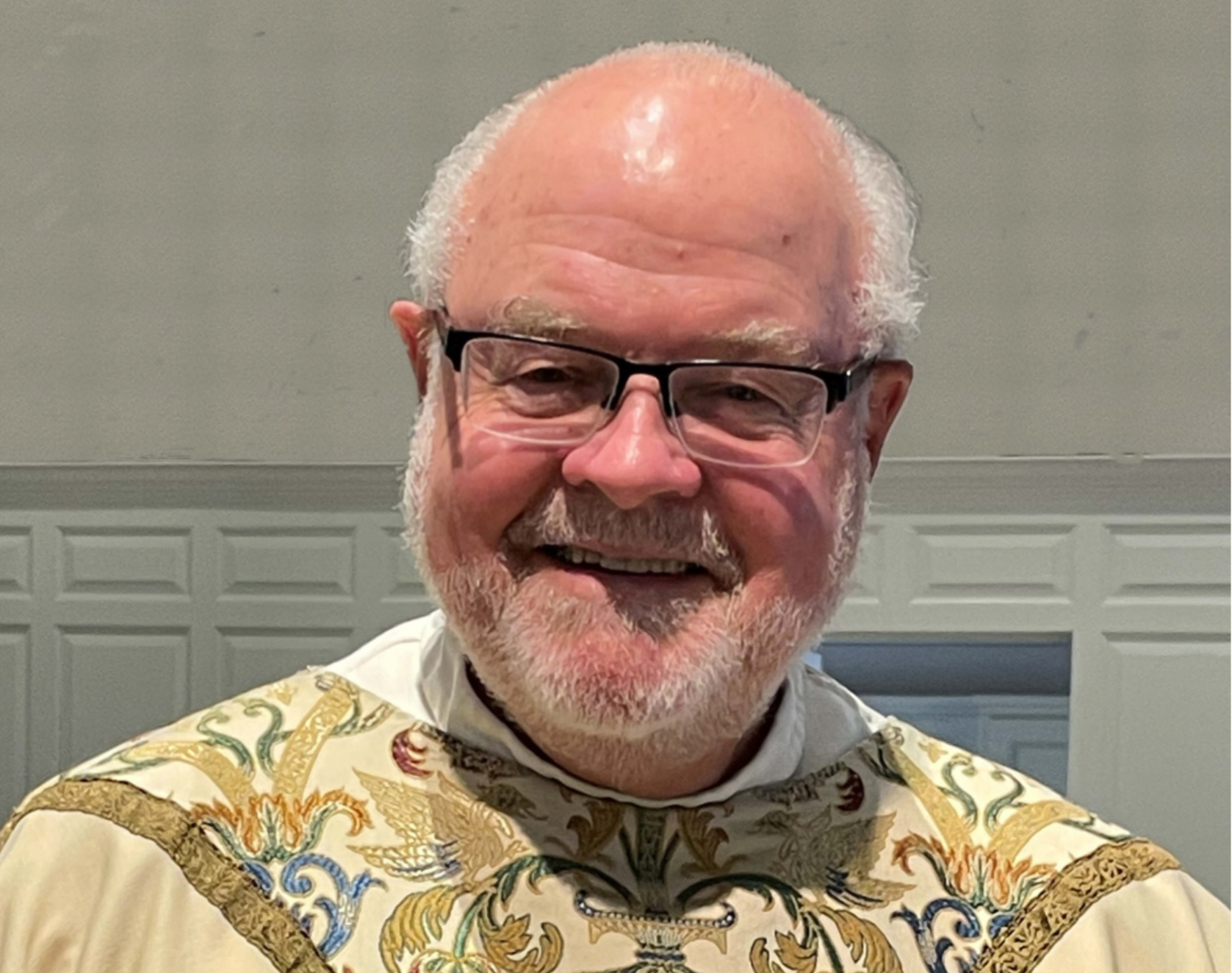
By Msgr. Paul Garrity
•
28 Jul, 2021
Ministry is a word with medieval roots that refers to service. Applied to Christian religion, it identifies how we care for one another in implementing the mandate of Jesus to wash each other’s feet. For the past 48 years, I have had the privilege of living ministry as a priest in many different places. As I conclude full time ministry as a pastor, I am humbled to be retiring from such a wonderful community: The Lexington Catholic Collaborative and from the most historic community in our nation. Pope Francis encourages us to be open and willing to accompany one another on our journeys of faith. As a priest, I have been privileged to accompany many people over the past 5 decades through times of great sadness, great joy and many moments in between. Sadly, three young boys entered eternal life during my Lexington tenure: Nate Cavallo, Quinn Amsler and Declan O’Connell. I am grateful for their prayers and have been deeply touched by the outstanding faith and courage of their families. More than a few brides and grooms have gifted me with their invitation to walk with them toward the celebrations of their unions. Baptisms are also moments of great joy and celebration. Over the past 6 years, I have had the awesome honor of providing this first blessing to 149 children and the great fortune to also welcome newcomers to our church as adults. When we began our Volunteer Appreciation Nights several years ago, it was edifying to see how many people exercise various ministries of service within Sacred Heart and St. Brigid’s parishes. Even more affirming was the intermingling of parishioners from our two parishes as we celebrated some outstanding individuals and reminded ourselves that we are one Body of Christ, the Church. Because music is such an important part of our Eucharistic liturgies, celebrating Mass in our two different churches has been a great joy for me. Our adult choir at Sacred Heart, our two choirs at St. Brigid’s and our Sunday evening band have provided different flavors of liturgical excellence that is uncommon within one church community. When the pandemic is completely behind us, my prayer is that the richness of this variety will spring back into life. My favorite, of course, has been the growth of our children’s choir that has attracted so many young families to our community. Suppers with the pastor for our Confirmation students is another highlight of my time in Lexington. Our young people are bright, enthusiastic and more than able to carry on the great gift of our faith as they reach for new heights of excellence in their own lives. St. Patrick’s Day celebrations and Italian nights were among the most joyful and over-crowded events during my Lexington sojourn. When the pandemic finally becomes a bad memory, these kinds of events will need new blood (and old blood) to make them happen. In a very subtle way, they contributed enormously to the wellbeing and unity of our community, for which I am most grateful. Christian service is truly a hallmark of our Lexington Community. Haiti, Honduras, Roxbury, Framingham Prison, Haley House, Rosie’s Place, Parenting Journey and so many more are the beneficiaries of the good works and generosity of our two parishes. I am sure that we are all proud, as I am, of the great work in which we are privileged to participate. Our Collaborative Pastoral Council and our Finance Councils have been a great support for our community and for me personally. I am most grateful for their ministry and service. I am equally grateful for the wonderful, committed staff that I have been privileged to work with during my six-year term as pastor. Their gifts are numberless and they share these abundantly. We are all blessed to have them working so hard to build up and nourish the faith-life of our community. As I prepare to retire this month, I am deeply grateful to all the parishioners of Sacred Heart and St. Brigid parishes for your affirmation and support. During this pandemic, everyone has gone the extra-mile to support our parishes and been so understanding as we have tried to keep everyone healthy and safe. We live in very challenging times. Our task as Christians and as Catholics is to always walk in the Light of Christ. When we allow our faith to illuminate the path ahead and critique the path that we are on, good things emerge. God’s love is larger than anything we can imagine. Keeping this in mind has energized me since my ordination in 1973. Thank you all for the opportunity to walk with you in faith and love for these past 6 years. It has been an honor and privilege to serve this beautiful Lexington community! God Bless Msgr. Paul

By Msgr. Paul Garrity
•
20 Jul, 2021
One picture is worth a thousand words. Christopher Weyant’s cartoon in one of last Saturday’s newspaper bears this out, exceptionally well. Two men are in free fall from an airplane, skydiving. One man has a parachute on his back which carries the words: COVID Vax. He appears flummoxed as he looks at his fellow skydiver with no parachute. Hat flying, his big belly hanging out and his mouth wide-open, the chute-less man is saying “… Ain’t gonna catch me wearing one of those (COVID 19 Vax)! Who knows what’s in it? Government’s not taking away my freedom.” It would be hilarious except that it graphically illustrates the kind of mentality that is driving the anti-vaccine movement in our country today. As the skydiver plunges toward a certain death, he is oblivious to the irrationality of refusing the one thing that can save his life. An actual case made the same point in a recent TV interview. A husband and father of four made a plea that others may not make the mistake that he and his wife had made. His whole family contracted Covid-19 after deciding to forego vaccinations. They all became seriously ill and his wife died. They made their decision not to be vaccinated after watching cable news reports that cautioned them not to be vaccinated. They believed these talking heads and ignored the recommendations of their doctors. With tears in his eyes, this Covid-19 survivor, and now widower, hoped that others would learn from his unfortunate mistake. There may very well be substantial reasons why certain people should not receive Covid-19 vaccinations. These folks, however, represent a miniscule number within the wider population. The fact is that vaccinations are saving lives and enabling our country, and eventually, our world to move beyond this terrible pandemic. In order to defeat this dreadful scourge, it is beyond necessary that every person, who is able, should receive a vaccine. The politicization of this issue is reflective of a deeper problem that has been growing slowly within our nation. It has many faces and takes shape in different forms. At the core, however, is a fundamental rejection of the notion of community. Thomas Hobbs, a 17th century political philosopher, believed that the state of nature, into which we are all born, is bereft of natural goodness and that we are all condemned to kill each other or be killed. A social contract, driven by fear, is the only reason that civil society is able to exist. In Hobbes’ view, it was every man for himself. Notions of community or the family of humankind are totally absent in the Hobbesian world view. This social contract individualism is at odds with public responsibility and respect for the common good. Getting vaccinated is really a civic duty. It certainly protects the individual from serious infection but, more importantly, it protects health care workers and neighbors from being infected by unaware carriers of the virus. We should all get vaccinated not simply for our own wellbeing and health. We should get vaccinated for the protection and wellbeing of everyone around us. Respect for the truth is another casualty of the kind of individualism, rampant in our day. Opinions are shared as facts irrespective of their veracity. Vaccines are not harmful. Vaccines are not unsafe. Vaccines are not immoral because of their development. Vaccines do not prevent pregnancies, nor do they make men sterile or cause life-threatening abnormalities. People who spread these fictions are simply propagating myths that are not true. There is no such thing as ‘alternative facts’. People are welcome to think that the moon is made of green cheese. Thinking this does not make it so. While the pandemic that shut down our lives for the better part of 15 months has been de-fanged in our state, it is still raging in other parts of our country. In spite of the testimony of former anti-vaxers, the testimony of countless doctors, the clear guidance of epidemiologists and the lived experiences of the vaccinated, some media outlets continue to tout personal freedom as a justification for refusing to be vaccinated. Social media continues to amplify these voices and the bottom line is that people are continuing to die in the pandemic of the unvaccinated. One antidote to all this is a renewed sense of personal responsibility that propels us to see ourselves in true Biblical terms as our “our brothers’ (and sisters’) keepers”. This has truly become a life and death issue. Self-centeredness and selflessness are polar opposites but describe the real challenge that the pandemic has cast into bold relief. Unless we collectively rise to this challenge and grow beyond the egocentrism that vaccine hesitancy has laid bare, the next pandemic may be worse than the one we are struggling mightily to overcome. God Bless! Msgr. Paul
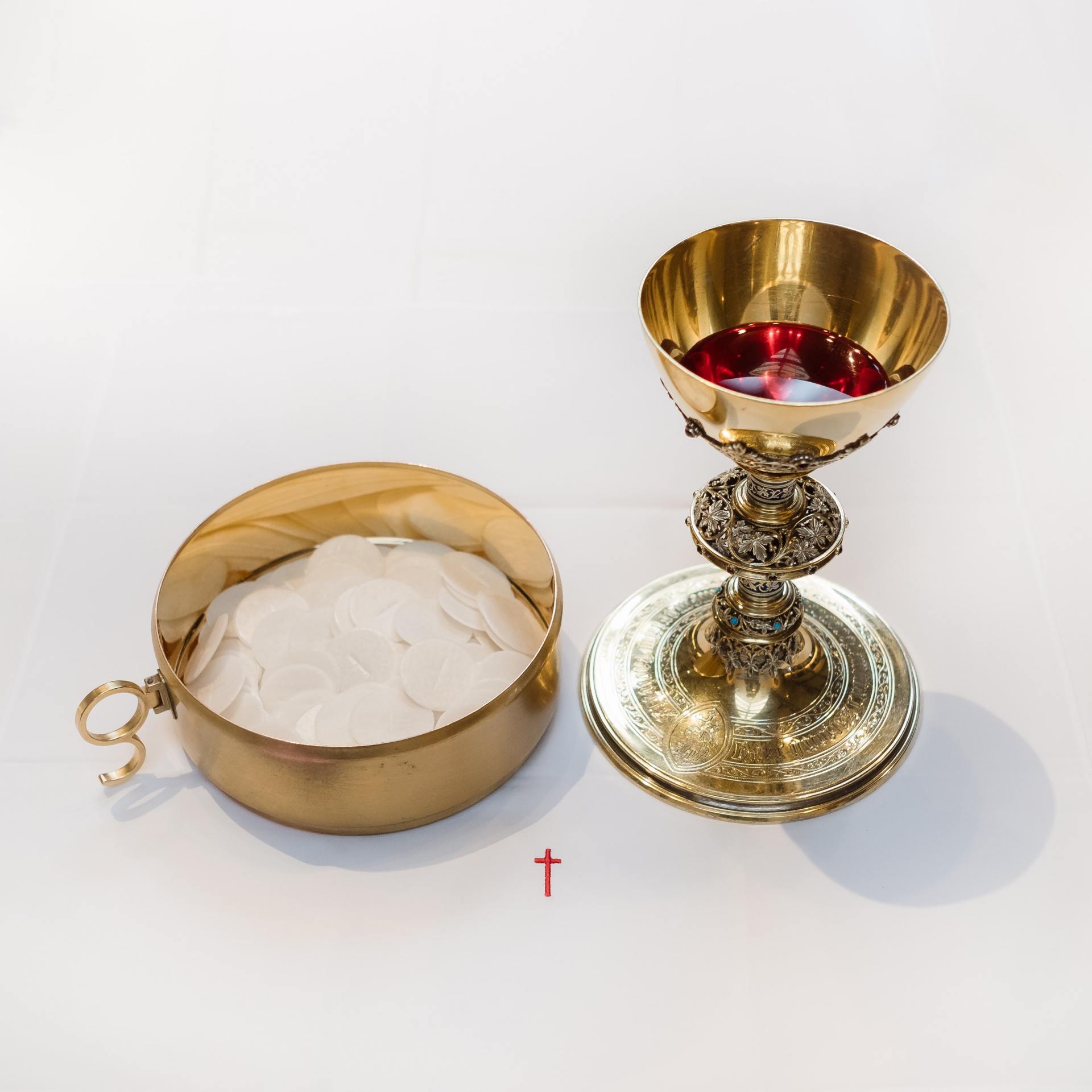
By Msgr. Paul Garrity
•
20 Jul, 2021
In 2019, a national survey suggested that there was confusion within the Catholic population about the doctrine of the Holy Eucharist. Specifically, there seemed to be a difference of opinion about what is called the Real Presence. This refers to the fact that the bread and wine offered at mass are literally changed into the Body and Blood of Jesus. Cardinal Sean responded to this alleged confusion by determining that 2020 should become the Year of the Eucharist in the Archdiocese of Boston. This would be a prolonged catechesis on Eucharistic theology and, presumably, clear up any misunderstandings about the reality of the Holy Communion that we receive at mass. When everything came to a screeching halt in March, this intended catechesis on the Eucharist became one of many casualties. Later in 2020, President Joe Biden won the November election and became the second Roman Catholic to hold this high office. Surprisingly, his election precipitated the formulation of relatively new concepts in our community: Eucharistic coherence and Eucharistic consistency. These concepts became the way for some bishops to speak about people like President Biden who are not virulently anti-abortion but who attend mass and Holy Communion regularly. Pope Francis and many bishops have cautioned against bringing politics into discussions about the Eucharist. Nonetheless, the American bishops decided to issue a new statement about our understanding of this central doctrine of the Catholic Church. (Possibly, this will dove-tail nicely with Cardinal Sean’s previous intention to make 2020 a catechetical, deep-dive into this central mystery of our Catholic community.) Regardless of what the bishops have said after their June decision to issue a new document on the Eucharist, the motivating factor for this new guidance was the desire of some bishops to deny Holy Communion to public figures who do not agree with them regarding abortion. As the bishops begin to speak about Eucharistic coherence and consistency, they should be aware that this new standard may cause them to re-think their singular preoccupation with abortion. At the Last Supper, the Gospel tells us, Jesus got up from the table and proceeded to wash the feet of his disciples. When he finished, he said “… If I, your Lord and Teacher, have washed your feet, you also ought to wash one another’s feet. For I have given you an example, that you should also do as I have done foryou.” (Jn13.14-15) This example is reenacted each year in our Holy Thursday liturgy when we celebrate the institution of the Eucharist. In dramatic fashion, this action of Jesus connects the Eucharist with service. Jesus does not mean that we literally need to go around washing each other’s feet. Instead, he sends a clear message that the celebration of Eucharist can never be divorced from the active care for one another, most especially the poor, the homeless and the forgotten of our world. This is what it means to be a “Eucharistic people.” There is no doubt in anyone’s mind that the decision of a woman to end her pregnancy is both wrenching and painful. There is also no doubt that the most effective strategy for helping expectant mothers is intimately bound up with the promise of a range of supports like pre-natal care and adequate medical support for both mothers and new babies. When expectant mothers lack these supports and experience an accompanying sense of hopeless, it is no wonder that choosing life becomes so difficult. Eucharistic coherence and consistency should be measured by the efforts that are made to expand the safety net for the most vulnerable in our midst. When the safety net is contracted, poor people suffer most. When it is expanded, people who live on the margins of life are its beneficiaries. Among those who benefit greatly from an expanded safety net are expectant mothers. So far, one of the singular accomplishments of President Biden’s administration is the expansion of the safety net that will bring thousands of children and young families out of poverty. The American Rescue Plan is one of the most Pro-Life pieces of legislation that we have seen in a very long time. Besides supporting families, it will contribute to building the kind of culture of life that will enable expectant mothers to put aside their fears about bringing new babies into our world. Supporting this kind of legislation and the philosophy behind it is a great example of what it means to be a Eucharistic people. This is real consistency and real coherence. Our hope and prayer is that as the bishops formulate their statement for approval at their November meeting, they underscore that Eucharistic coherence and consistency is about being the Eucharistic people that Jesus commanded at the Last Supper! God Bless! Msgr. Paul
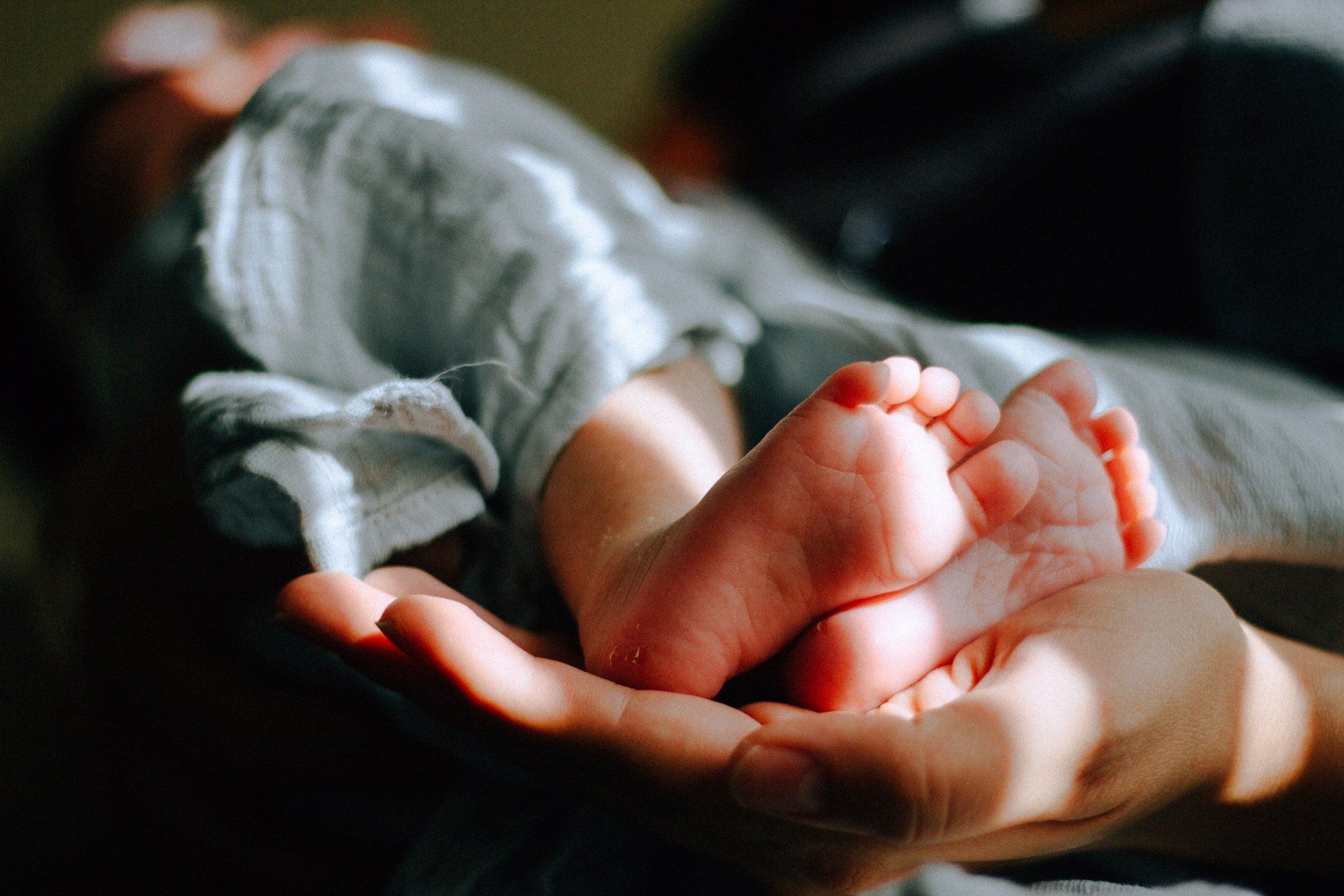
By Msgr. Paul Garrity
•
06 Jul, 2021
“Mother, may I go out to swim; Yes, my darling daughter. Hang your clothes on the hickory limb, but don’t go near the water!” Contradictions and conundrums appear in all dimensions of life. This little ditty is both illogical and paradoxical. Trying to follow through on this kind of instruction is like the man who paints himself into a corner. There is no way out without spoiling what he has just finished painting. Winding its way through the courts for the past 7 years is a case that is chock full of contradictions. A young woman in New Jersey was employed as a teacher in a Catholic School. When she was asked to take on some additional responsibilities, she informed the Sister-Principal that she was pregnant and would not be able to do so. According to court records, the principal told her that she was being terminated “… because she was pregnant and unmarried.” She sued and the case is still unresolved 7 years later. Specifically, the Superior Court of New Jersey is being asked to determine whether the school’s knowledge of her pregnancy can serve as the basis of her termination “… for violating the school’s moral code.” An appeals court has twice upheld the teacher’s contention that her firing was unjustified and unlawful. The school has appealed these rulings based on First Amendment grounds. The whole case will most likely end up in the US Supreme Court at some time in the future. There are all kinds of legal issues in this case. At the core is the argument that religious liberty, guaranteed under our Constitution, can be used as an argument to discriminate against people who do not follow the moral code of religious organizations. How the Supreme Court eventually shapes its response will have broad implications for many years to come! Putting this larger issue aside, this case should cause concern because of what it says to the world about the Catholic Church. The teacher’s name is Victoria Crisitello. Had she kept her pregnancy quiet and had an abortion, she would still have her job today. Had she known that her decision to keep her baby would result in her termination, she may very well have decided that she could not bring her child into the world. There is no doubt in anyone’s mind that the official Catholic Church in the United States is vehemently opposed to abortion under any circumstances. The bishops have gone so far as to suggest that opposition to abortion is the pre-eminent moral issue of our day. (It is important to note that Pope Francis does not hold this opinion.) The bishops refer to this position as being Pro-Life. Parenthetically, it should be noted that the bishops support eliminating the coverage of contraceptives in health care plans for employees of Catholic institutions. This is not part of Ms. Crisitello’s lawsuit but does provide some interesting observations about her pregnancy. The contradictions in this legal battle are fairly obvious. Ms. Crisitello made a Pro-Life decision when she decided to have her baby. This is what the bishops would like all women to do. When she made this decision, however, it caused her to lose her job. When single women are pregnant, some of the reasons that they chose to terminate their pregnancies are the lack of financial resources and other supports for expectant mothers. Her firing from her job, putting her economic stability at risk, could very well have caused her to change her Pro-Life decision to have her baby. This case puts into bold relief what it really means to be Pro-Life vs. Anti-Abortion. If Jesus had been the principle of the Catholic school in question, what would He have done? My suspicion is that He would have supported Ms. Crisitello’s decision to have her baby, not fired her and informed the school community that celebrating life is always the best option. Doing so would not jeopardize the school’s moral code but send a clear message about unconditional love. Some bishops today want to deny Holy Communion to people like President Joe Biden and Speaker of the House Nancy Pelosi because they feel it is scandalous that they approach the altar even though they do not support the bishops’ positions on abortion. What seems to be more scandalous is the treatment of the New Jersey school teacher who was penalized for doing exactly what the bishops would have wanted. Being Pro-Life needs to be far more than Anti-Abortion. It should include supporting pre-natal care for all expectant mothers, especially those who are single and poor. It should include support for infants and children after birth. It should include paid maternity leave for all employees of Catholic institutions and not left to the decisions of pastors and other administrators of Catholic entities. It should include support for the elimination of capital punishment and so much more. The defense of religious liberty is an important aspect of our First Amendment. Caution needs to be applied liberally, however, when it causes unjust discrimination and the potential for outright harm. If this case makes it to the US Supreme Court, we should hope that all this will be considered. God Bless! Msgr. Paul
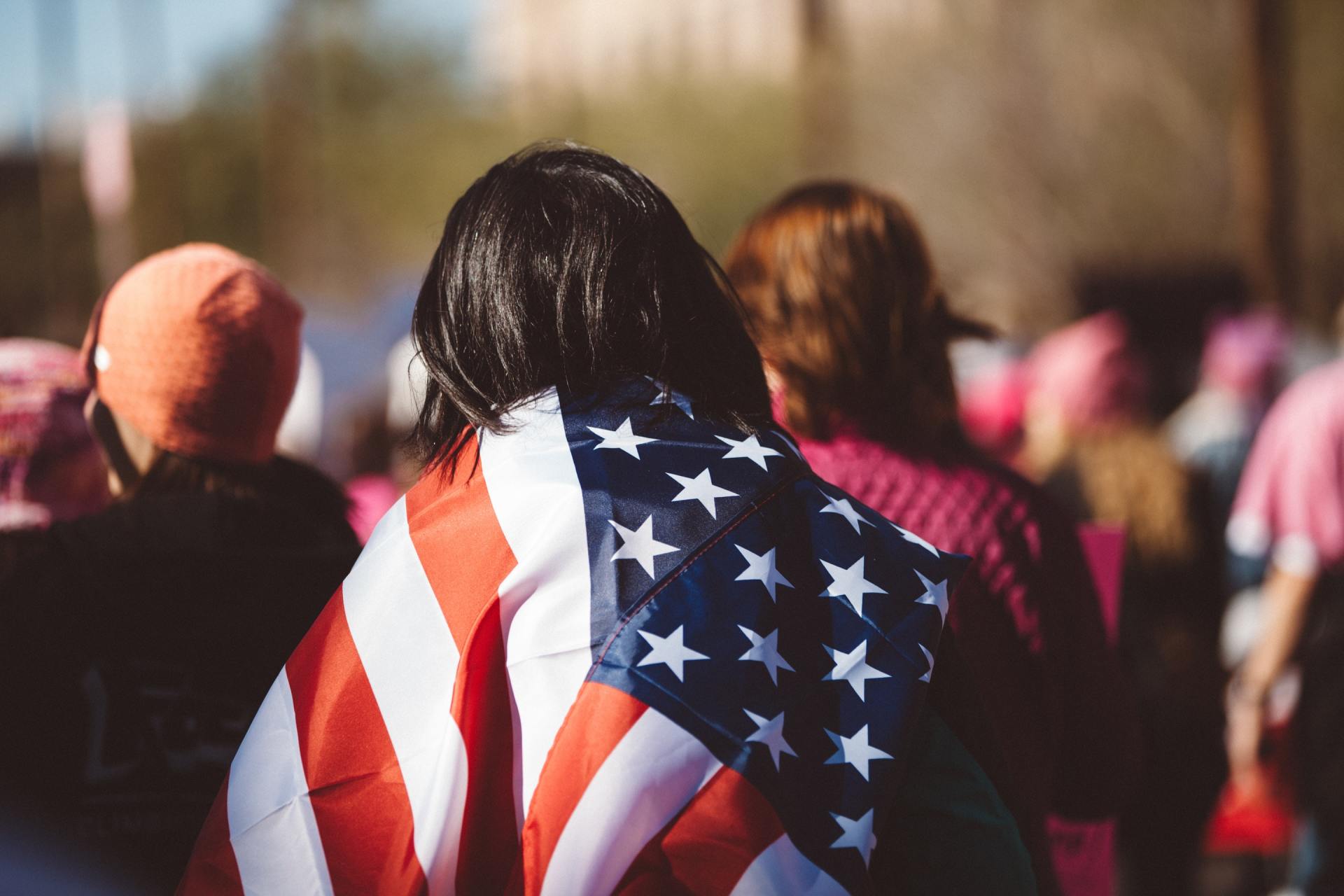
By Msgr. Paul Garrity
•
29 Jun, 2021
Haunting conversations have a way of staying with us because they trigger deeper reflections that can be both memorable and disturbing. One recent conversation was both. A college professor had just joined our group and explained that he taught a two semester course on Western Civilization. He was very proud of his course, his students and the interaction that his lectures invited. Because his syllabus lacked any authors of color, he was asked if any Black students took his course. He responded, almost immediately, by saying that Black students would find his course too “challenging.” Shocked by this answer, another person asked if he agreed that systemic racism was a problem in our country. He did not. Though Black and Brown people got sicker and died at higher rates than others during the pandemic, he was reminded, a medical doctor in the same conversation opined that there was a blood idiosyncrasy among people of color that made them unusually more susceptible to Covid-19. (Shock #2) Most people are not racists and these two gentlemen would not see themselves as racists by any means. What they said in this brief conversation was deplorable, racist and especially disturbing, given their age and education. These comments, like the tip of an iceberg, were the visible evidence that the abolition of racism has a long, long way to go in our society today. As we celebrate Independence Day and the birth of our nation, there is a raging battle over what has come to be known as Critical Race Theory. State legislatures and school boards across our country are protesting its inclusion in the regular curriculums of our public schools. It has become a staple in our ongoing culture wars. So what is Critical Race Theory that is causing such great turmoil? Critical Race Theory is American History! Black Wall Street was burned to the ground 100 years ago. It was the Greenwood District in Tulsa Oklahoma, home to over 10,000 prosperous Black residents. It is considered the single worst incident of racial violence in American history. In spite of the massacre of over 200 Black residents, the injury of over 800 Black citizens and the complete destruction of their livelihoods and homes, the Tulsa race riots were never included in the history books that most of us read in school. While we all learned that Lincoln freed the slaves, we never learned about Jim Crow laws, the frequent lynching of innocent Black men or the machinations that deprived Black people of their right to vote. We never learned that our Founding Fathers were slave owners or that some would be guilty of rape in a 21st century court. In fact, we never learned how the treatment of Black men and women throughout our nation’s history is nothing less than an outrageous and disgraceful scandal. Critical Race Theory (CRT) began as part of the civil rights movement of the 1970s. Initially focused on the intersection of U.S law and racial justice, it blossomed into an analysis of how disparate racial outcomes are the result of systemic racism rather than intentional prejudice on the part of individuals. It flourishes today as a reminder that American history is sorely deficient if it does not include a thorough discussion about the roots and impact of racism. The sentencing of Derek Chauvin last week for the murder of George Floyd re-kindled the outrage that his 9-minute torturous death ignited one year ago. Floyd’s homicide at the hands of a police officer as other police officers stood idly by, captured on video, catapulted racism to the consciousness and conscience of our nation. “Black Lives Matter” signs that dot our landscape bear witness to a rejuvenated awareness that so much more needs to be done to create the beloved community that was the aspiration of Dr. Martin Luther King. Our July 4th holiday celebrates something wonderful in our history. We call it Independence Day for a reason. We are a democratic republic. We are a free people who hold within our hands our own destiny. Our Pledge of Allegiance contains our ambitions when it says: liberty and justice for all. Today, we realize, as never before, that these goals have been denied to many of our brothers and sisters because of the color of their skin and, in many cases, because of their national origin. “Stop Asian Hate” signs have joined the BLM signs and underscore the unfinished agenda of the Civil Rights Act of 1965. White privilege is real. Our Black, Brown and Asian sisters and brothers attest to this fact and live with its consequences every day. In order to get where we need to be as a nation, we need to acknowledge this along with systemic racism. We need to teach our children the unvarnished truth of American history. At the same time, we need to celebrate the triumphs of our democracy. Most importantly, we need to become anti-racists in our hearts and actions. Democracy is fragile. It needs to be strengthened through honest education. It needs greater voter participation not less. Most of all it needs healthy, honest dialogue that rises above partisanship, eschews demagoguery and seeks the common good of all of our citizens. This is how liberty and justice can become more than empty hopes for everyone. God Bless! Msgr. Paul
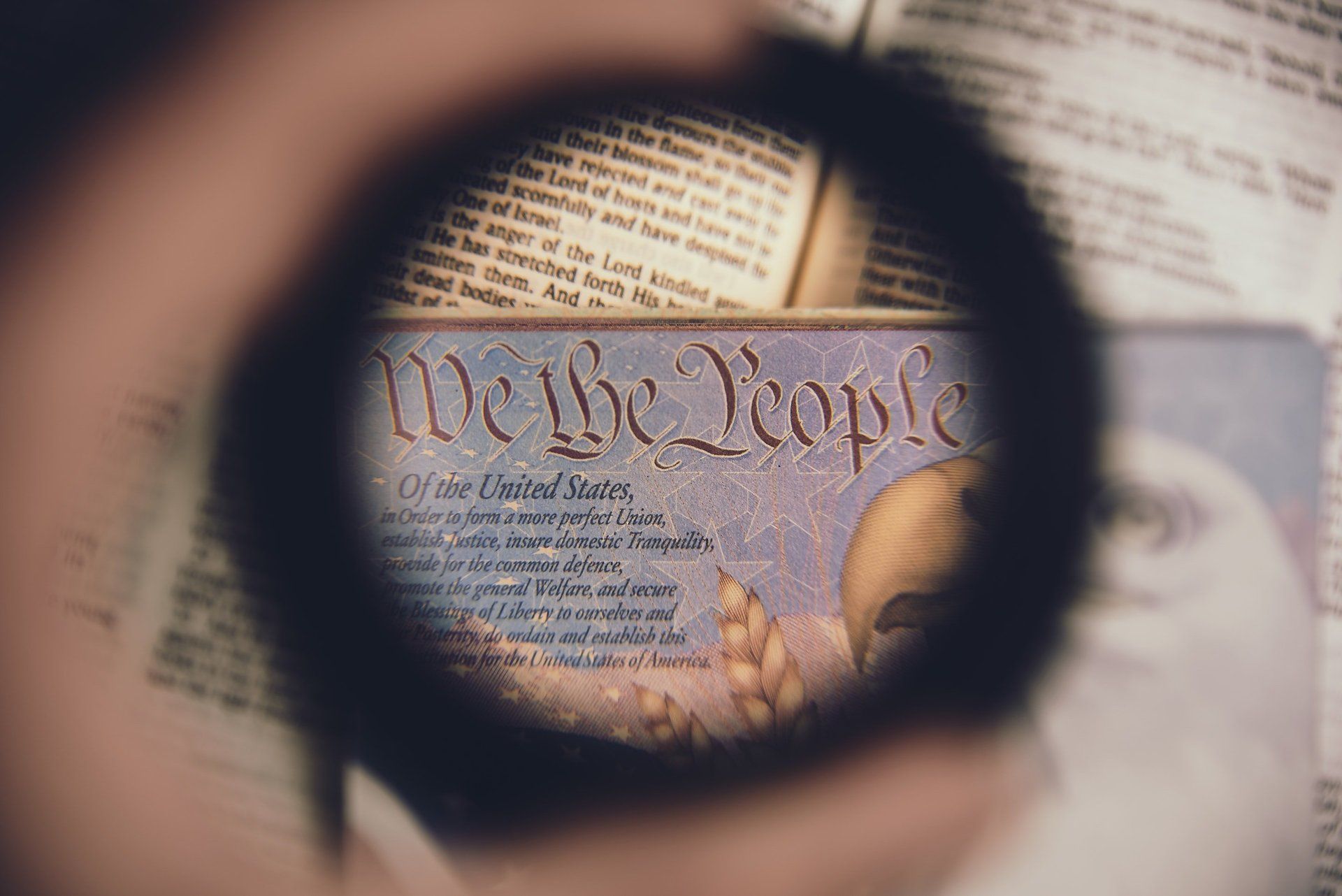
By Ms.gr. Paul Garrity
•
23 Jun, 2021
Last week, a new chapter was written in the ongoing debate between church and state in our country. On Thursday, the Supreme Court found in favor of Philadelphia Catholic Social Services, effectively defending their policy of discriminating against same-sex couples who are interested in adopting foster children. On Friday, the U.S. Conference of Catholic Bishops took a giant step forward toward prohibiting people like President Joe Biden and Speaker of the House Nancy Pelosi from receiving Holy Communion. Some Catholics went to church last weekend feeling reassured that conservative values like the defense of the unborn and the unacceptability of gay marriage were being upheld. Some other Catholics went to church wondering what happened to unconditional love and the principle of treating everyone with dignity and respect. Some other Catholics may have decided that it was time to look for another church. To say that the issues of the entanglement of church and state that were thrown into bold relief last week are complex is a colossal understatement. Consequently, these events need to be processed slowly and examined critically. The Supreme Court case is the easier of the two. The Court upheld the contention that Catholic Social Services should have been given an exemption from the Philadelphia policy that prohibits discrimination on the basis of sexual orientation. It did not weigh in on the larger issue of “anti-discrimination principles” versus claims of conscience based on religious beliefs. In true Supreme Court fashion, the case was unanimously decided with the majority opinion focusing on the narrowest grounds possible. The opinion held that because the city had the right to make exceptions and had already done so in other cases that there was no foundation for the denial of an exemption for Catholic Social Services. The Catholic Bishops are another story. Several weeks ago, Pope Francis sent a message to the American bishops that they ought to be very cautious about making the reception of Holy Communion into a divisive issue within our Catholic community. In another place, the Pope had already pointed out that Holy Communion is not a reward for good behavior but a healing remedy for the brokenness that afflicts us all. It is hard to know if this guidance was in the minds and hearts of the bishops at their June meeting. When they voted overwhelmingly to ask the Doctrine Committee to draft a statement on the Eucharist, they obviously did not take into consideration what we might call the “optics” of their decision. Headlines across the country and nightly news programs reported that the bishops were taking aim at President Biden and Speaker Nancy Pelosi, both practicing Catholics. In their political careers, neither the President nor the Speaker have sought to impose Catholic teaching with regard to abortion on the rest of the country. Because some bishops perceive them to be off the Catholic reservation on this issue, they are seeking to effectively excommunicate them, i.e. deny them their right to receive Holy Communion at Mass. While the optics are one thing, the reality is a bit different. The bishops had a two-hour Zoom debate over whether the Committee on Doctrine should be empowered to write a teaching document on the Eucharist. Doctrine Committee Chair, Bishop Kevin Rhoades of Fort Wayne-South Bend, Indiana reassured the bishops that the proposed statement “… will not include policy or guidance on denying Communion to the president or other public officials, but rather will be a broader teaching document.” (NCR 6.18.21) This new document will be presented at the November bishops’ meeting and will require a two-thirds majority of the conference for adoption. In all likelihood, it will break no new ground with regard to our understanding of the Eucharist and respect the authority of local bishops to make decisions about what is being called “Eucharistic coherence.” So the bottom line for people who care about the Church is that the bishops had a heated debate that created more heat than light. The headlines around the country did not do justice to the complexity of the issue but did paint the Catholic Church in a bad light. Because many people do not read beyond the headlines or take time to understand the nuances of what took place, the bishops have not advanced our appreciation of the Eucharist but have succeeded in exacerbating our progressive vs traditionalist divide that should concern us all. The smartest thing to have done would have been to take the issue off the agenda and save the Church and the bishops the bad publicity that will now follow them into the November meeting. Our hope and prayer is that our second Catholic president will continue to practice his Catholic faith at Sunday Mass and encourage others to do as, as well! God Bless - Msgr. Paul

By Msgr. Paul Garrity
•
16 Jun, 2021
Which is more important? Making all abortions illegal or preserving our democratic republic? I asked this question recently to a very bright and well-read senior citizen. She is a thoughtful and faith filled Catholic. When I posed the question, she paused for about 5 or 6 seconds before answering: of course, defending democracy is the more important of the two choices. It was interesting for me to see how long it took her to answer. I asked her a second question. Suppose I invite you and I to go and rob a bank? Her answer was immediate! The answer to both questions should be instantaneous. Democracy is why we have the government that we have. Everything about our way of life in the United States depends upon the work that our forebears did in the 18th century. The Executive, Representative and Judicial branches of our government reflect Enlightenment thinking that moved away from monarchy and authoritarianism. While the built in tension among our three branches of government can often produce frustration, we remember the observation of Sir Winston Churchill that democracy is the worst form of government except that it is better than all the rest. The polarization that exists in our nation today did not happen overnight but is the consequence of many factors over the past 48 years. Think of a fuse attached to a stick of dynamite. When the fuse gets lit, it takes some time to burn to the point that it ignites the dynamite. Then an explosion occurs. In 1973, Roe v Wade lit a fuse that culminated in the January 6th insurrection in our nation’s capital. For the past 5 decades, abortion has been the defining issue, pulsing through our body politic like a power surge that fries all the connected electronics. Terms like pro-choice, pro-life and anti-abortion entered our lexicon of political jargon and have been used to define and brand institutions and individuals, alike. Jerry Falwell’s Moral Majority, founded in 1979, would never have gotten its traction without its anti-abortion flag. Coincidentally, the Heritage Foundation, a conservative think tank founded in 1973, went on to prominence by burnishing its anti-abortion policy prescriptions during the Reagan presidency. The insurrection on January 6th of this year was the result of coalitions that came together a long time ago on the common ground of reversing Roe v. Wade. This became the pre-eminent issue in the culture war that decries gay marriage and LGBTQ rights and promotes traditional family values. The insurrection would probably not have happened if Evangelical Churches and Catholic bishops had not told their constituents that they had no moral choice to make in the 2016 election. In spite of a history of being Pro-Choice, the Republican nominee saw great political gain in becoming the standard bearer for the Pro-life factions in our national electorate. This was enough to win the effective endorsement of more than a few prominent religious leaders. Many of them echoed these semi-official sentiments; opinions to the contrary were silenced. It is becoming increasingly clear that the culture war is fueling some very anti-democratic aspirations. When retired General Flynn recently agreed with a rally-goer that we need a Myanmar type of overthrow of our government, both the suggestion and the response should alarm us all. Notable Second Amendment proponents have lately down-played recreation and hunting as reasons to own guns. The real reason, they maintain, is so that militias can confront government authority if people feel that their freedoms are being taken away. These may be outliers that can be dismissed but groups like The Proud Boys and other white-supremacist groups should give us pause. More dangerous to our democratic institutions, however, are the wide-spread attempts in many states to curtail voting rights and to make it simply more difficult for people to vote. Curtailing Sunday morning voting (which has become a practice in many Black churches) is not only an attack on democracy but a clear revival of the discredited practices of the Jim Crow era. The divisions that exist within our nation today are becoming more hardened than ever before. The algorithms of the internet that can feed our worst fears may be good for some businesses but are bad for democracy. What is most needed is a return to civility, an appreciation of the need for real compromise and a re-commitment of religious institutions, among others, to become part of the solution and not part of the problem. Unless we became more pro-active about what is taking place around us, the next insurrection may be a lot worse than the last. Democracy is fragile and needs all of us to protect it for generations yet to be born. God Bless! Msgr. Paul

By Msgr. Paul Garrity
•
08 Jun, 2021
Last April, I invited parishioners to think about the future of our Catholic Community in Lexington. Because so many parishes are being merged throughout the Archdiocese, I invited parishioners to let me know their thoughts on whether we should be looking at this in Lexington. I indicated that I would be making a recommendation to Cardinal Sean before I retired in August. I first want to say thank you to all the people who responded. Your thoughts and observations were very helpful. They all reflect a deep love for our two parishes and aspirations that our best days are ahead of us. They also reveal that Sacred Heart and Saint Brigid parishioners are faith-filled committed Catholics who want nothing better than to see our Lexington Catholic Community thrive and grow. I began my time in Lexington on June 1, 2015. Fr. John Chen and I arrived at the same time and found ourselves in Phase III of the roll out of the Archdiocesan Plan for Mission called Disciples in Mission (DIM). We set about the task of implementing the plan that called for one pastoral staff to lead two separate parishes. Central to this task was the establishment of one Collaborative Pastoral Council (CPC). Council By-Laws were put in place and elections took place in the spring of 2016. Since then, a second election has taken place in the spring of 2019 which gave us our present CPC. DIM also called for there to be two distinct Finance Councils. This reflected the general intent of the Archdiocese to link parishes together under one pastoral staff while maintaining their fiscal independence and autonomy. The existing members of the Finance Council were happy to stay on and continued to hold their meetings together. The notion of merging our two parishes has been around for the past 30 years. When Sacred Heart was initially slated to be closed under Reconfiguration, Cardinal Sean was persuaded to rescind this decision after a strong presentation by Sacred Heart parishioners. At that time, Fr. Colletti was the pastor of Sacred Heart and was given the job of pastoring St. Brigid Parish, as well. In a real sense, this decision anticipated what eventually became the plan for the whole diocese: placing one pastor and pastoral staff in charge of two or more parishes. For the past 6 years, I have enjoyed my time as pastor of our two parishes. Sacred Heart Church is a small worship space that creates a sense of intimacy between the celebrant and the congregation. It is a very enjoyable place to celebrate mass. (Joe Senneville’s funeral last week filled the Church and played beautifully to the strengths of this worship space.) Since my first day in Lexington, I was convinced that it would have been a terrible thing for Sacred Heart Church to have been closed during Reconfiguration. In fact, the first thing I did in the summer of 2015 was to install air-conditioning which makes a huge difference in heat waves like last weekend. (I could not do much about the parking.) One of the greatest strengths of Sacred Heart is the potential for great adult faith formation on Sunday mornings. Hospitality (that is returning this weekend) provides a natural place for engaging speakers and the exploration of major issues in the life of our Catholic Church today. This potential needs to developed for the whole Lexington Catholic Community. St. Brigid Church provides a very different worship experience with adequate space for large crowds of worshippers without that squished in feeling. The sanctuary affords great space for the ever-growing family liturgy music program. (A New Jersey visitor last Sunday went out of his way to say how he found Sunday’s 9:00 am mass so uplifting, and we are not even back to full strength yet). During the school year, Children’s Liturgy of the Word (CLOW) is a great option for young families with plenty of space in Keilty Hall and for hospitality after Mass and before Sunday morning Religious Education. St. Brigid Church is also very accommodating for large funerals, weddings and other significant gatherings. My past 6 years in Lexington have been very rewarding. My life has been enriched by getting to know so many wonderful people in both parishes. It has also been a unique privilege to be with parishioners at great moments of joy and sadness. As I prepare to leave, I am convinced that Lexington is a very special place and is so fortunate to have two very distinct worship spaces and properties that play to different strengths. I continue to believe that synergy is not just a fancy word about working together but a dynamic reality that has exponential possibilities. Years ago parishes competed with one another and underscored loyalty. In an age of plenty, this did not do great damage. In an age of scarcity, the love of one’s own gets in the way of true collaboration and prevents the realization of true collaboration. I believe that this is the reason that parishioners across the Archdiocese are opting for merging their parishes rather than insisting on their own independence. I have come to believe that had we been one parish in Lexington with two worship sites, playing to the strengths of each community, that much greater things could have been accomplished over the past 6 years. I am deeply grateful for my time in Lexington and will always keep this community in my thoughts and prayers. God Bless, Msgr. Paul
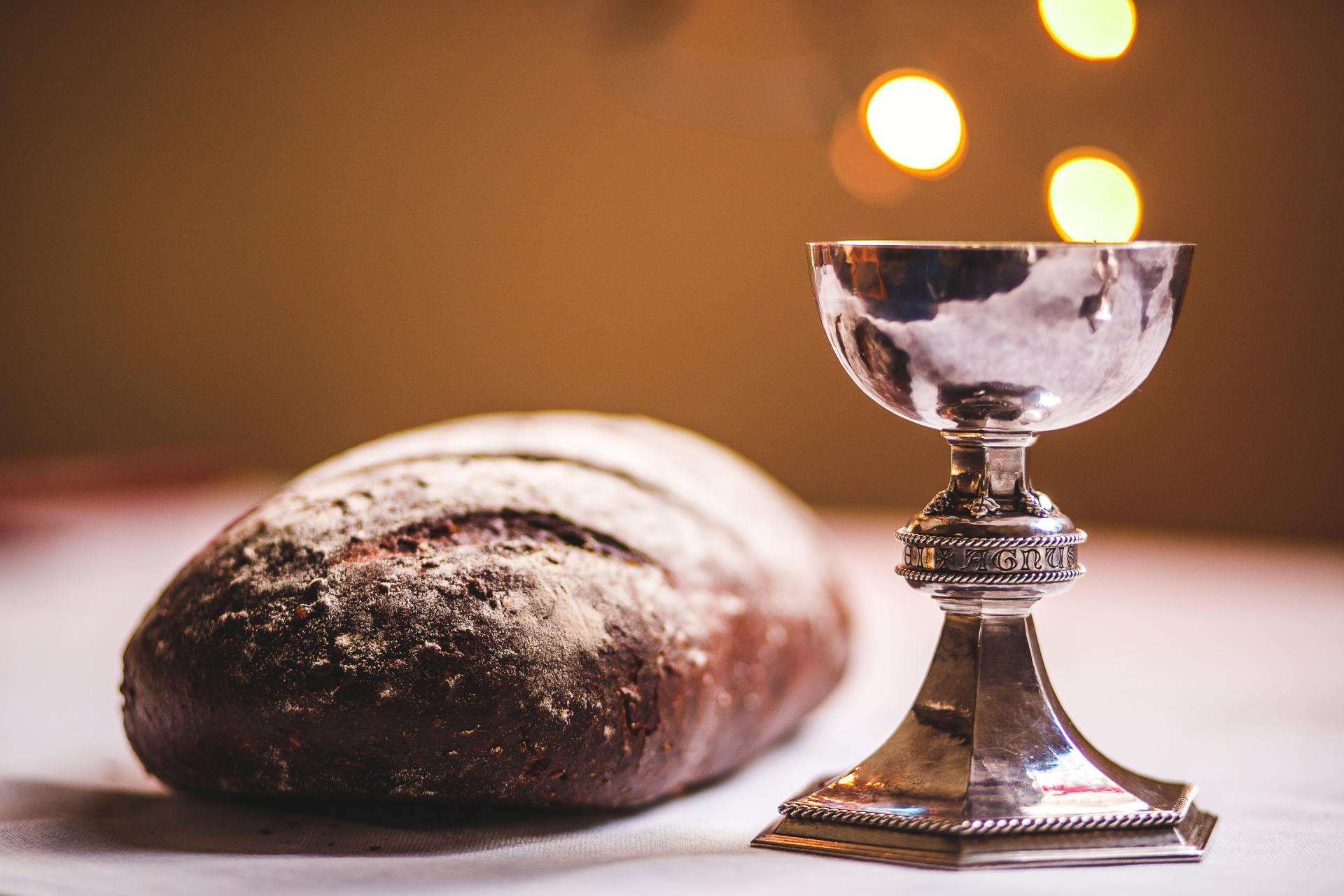
By Msgr. Paul Garrity
•
03 Jun, 2021
This past week we celebrated our fifth and last First Communion for this year. We have spread these out over several weeks with small family groups in order to be safe during this pandemic. With the grace of God, things will return to normal for next year’s class. First Communions are wonderful celebrations as we introduce our children to the kind of spiritual nourishment that the Eucharist provides. This weekend is the Feast of the Body and Blood of Christ, Corpus Christi Sunday, when the Church directs us all to reflect upon this second Sacrament of Initiation. Explaining the miracle of the Eucharist to children is not the easiest thing in the world to do. In fact, the miracle of the Eucharist is not the easiest thing for any of us to understand. Bread and wine literally become the Body and Blood of Jesus by the action of the priest at Mass with a community of believers. At Communion time, the priest or Eucharistic Minister holds up the host and says: The Body of Christ! We say Amen, meaning “Yes, I Believe.” What we believe is that the bread is no longer bread and the wine is no longer wine. They have been fundamentally changed into Christ’s Body and Blood. They look the same, they smell the same and they taste the same. However, they are no longer the same, ever again! When a young woman becomes a mother for the first time, she is changed forever. She looks the same, she talks the same and walks the same. However, she has been fundamentally changed. The same is true for the man who becomes a father. He also looks and talks the same. Fatherhood has made him into a different person, a changed person. Mothers and fathers never stop being mothers and fathers in the same way that ordinary bread and wine never revert to their previous state after being consecrated at Mass. This is one of the ways that we invite our children to appreciate Holy Communion. Tabernacles were first created to house the Eucharist that was not consumed at Mass so it could be brought to the sick at a later date. Our genuflection before the Tabernacle is one simple gesture that reminds us of what we have come to know as The Real Presence, Jesus present in the consecrated, unleavened bread of Holy Communion. (When I told a little boy one time that Jesus was present in the Tabernacle during a tour of the Church, he sidled up to me and whispered: Could you open the door so we could see him?) At First Communion time, we always tell our children that as wonderful as First Communion is, what is more wonderful is Second Communion and Third Communion and the fact that we get to nourish our lives of faith for a lifetime on this precious gift that Jesus has given to us. The celebration of Mass is the source and summit of our lives of faith. At its core is our reception of Holy Eucharist that nourishes us and strengthens us to be the disciples that Jesus calls us to be. As Pope Francis reminds us, Holy Communion is not a reward for good behavior; it is an elixir and a medicine to help us be well in this broken world of ours. In years gone by, we have sometimes lost sight of what properly disposes us to receive Holy Communion. Many people grew up thinking that they had to go to confession every time they planned to receive Holy Communion. Thankfully, we have grown beyond this misconception. If we are consciously aware that we have deliberately turned our back on God, we should seek reconciliation in the Sacrament of Penance or Confession. For all other sins, the Penitential Rite at the beginning of Mass prepares us for the Eucharistic celebration that follows. We should also be cautious about sitting in judgment on the worthiness of others to receive Holy Communion. Today, we hear talk about denying Holy Communion to people who are in support of capital punishment, since capital punishment is against the teachings of the Catholic Church. The simple fact is that no priest or Eucharistic Minister should ever refuse Communion to a person who reverently presents herself or himself at Mass. We do not and should not sit in judgment on the hearts and souls of fellow parishioners. We should also be very wary of people who choose to do so. This weekend’s Feast of the Body and Blood of Christ provides an opportunity for us to recommit ourselves to being a Eucharistic people. This means that we see our Sunday worship as the high point of our week. We come to Mass to be nourished by Word and Sacrament. Strengthened in our souls, we leave Mass with the instruction to go in peace to love and serve the Lord. We do this in the way in which we love and serve one another. It was no accident that before Jesus gave his disciples the Holy Eucharist at the Last Supper, he went around and individually washed the feet of his disciples. When he finished, he said, “What I have done for you, you must do for each other.” At the Last Supper Jesus taught us that there is an intimate connection between what we receive at Mass on Sunday and how we live as loving disciples on Monday through Saturday. We are called to wash each other’s feet in our lives of loving service. This is the message of today’s feast of Corpus Christi! God Bless! Msgr. Paul
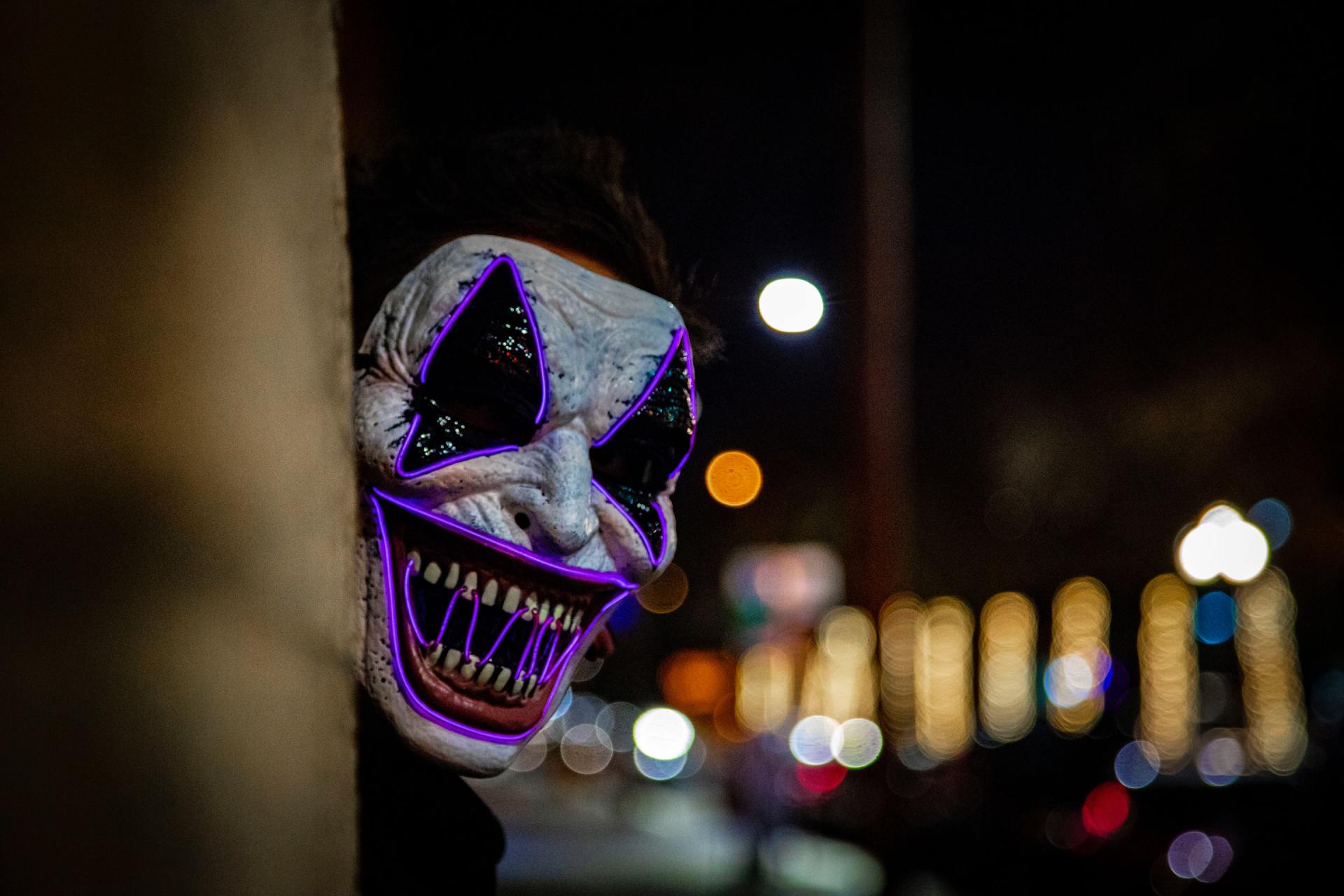
By Msgr. Paul Garrity
•
02 Jun, 2021
“Scared Stiff” is a familiar expression that captures something very powerful about fear. When we are terrified, we are immobilized, unable to move, frozen in place. Who knows why scary movies have a great following? Maybe it is because of the relief that is experienced when the villain has been vanquished. Whatever the reason, scary movies are not real and cease to cause angst once they are over. Real fear is something entirely different. It is a natural emotion that warns us about impending danger. It causes us to alter our behavior in order to avoid an impending jeopardy. Unfortunately, fear has a way of creeping into our spiritual lives, distorting our understanding of God and freezing us in a less than healthy appreciation of our faith. Burning in hell is a fate worse than death. Ever since Dante’s Divine Comedy, images of eternal punishment have been popularized in art and imagination, generating genuine terror, anxiety and dread. Translated into our moral lives, fear of hell has certainly been a source of motivation for the pursuit of a virtuous life. Certain passages of the Old testament buttress this dynamic of leading a good life to avoid punishment in the next. The Book of Revelation has some absolutely terrifying passages that communicate the same message. What they have in common is a notion of God as a punishing judge who is not above casting us into everlasting pain for the errors of our ways. There is no question that fear has been a motivation that our Church has used over the centuries to encourage good behavior. The Catechism of the Catholic Church tells us that “Mortal sin is a radical possibility of human freedom ... If it is not redeemed by repentance and God’s forgiveness, it causes exclusion from Christ’s kingdom and the eternal death of hell...” (CC 1861). We really do not know what the eternal death of hell is, but we surely do not want to find out. The problem with fear as a motivating influence for a virtuous life is that as soon as fear is removed so is motivation. Coupled with a reasonable appreciation of human actions, fear disappears when we realize that no one is in hell for eating meat on Friday or missing mass on Sunday. In act, no accumulation of venial sins can ever separate us for all eternity from the mystery of eternal life. And frankly, most of our bad behavior is not serious sin if it is sin at all. Motivation to lead an honest, loving life should not be grounded in fear. It should be rooted in gratitude. Gratitude, in turn, is the product of getting to know God by heart. We do this most of all by getting to know Jesus in Sacred Scripture. The mystery of the Incarnation, God becoming a human person in Jesus Christ, comes about in order for Jesus to help us understand who God really is. The parable of the Prodigal Son does this in a most poignant way. When the son returns to the father after having squandered his inheritance, the father brushes aside his son’s selfishness and irresponsibility. He embraces him with deep love and affection. Jesus wants us to know that this is how God deals with our sins and shortcomings. There is no punishment for sin but only joy in the heart of the loving father: the loving God that Jesus wants us to know. Forgiveness is real and without preconditions. It washes over the prodigal son like an ocean wave or a blanket of snow. How can the son not feel an overwhelming sense of gratitude? How can we not experience the same thing when we reflect upon our own brokenness and God’s unconditional love and forgiveness? Gratitude is the linchpin of the Christian life. It is rooted in our appreciation of the reality and mystery of God. It is the enduring motivation for living a loving and productive life. Before we can get to know the fullness of who God is, we need to let go of some of the notions that we have of God as the Punisher in Chief. Most of us would never condemn a person to hell. It is hard, therefore, to think that we are more forgiving than God. The fact of the matter is that God is in charge and we do not have to take on the real challenges that God must face every day. What we need to do is be grateful for our loving God who watches over each of us like a loving parent and who never stops loving us in spite of our bad behavior. On Trinity Sunday, we are reminded that the Father Loving the Son is the Holy Spirit. God is all about love. We are first loved by God and should never fear that anything will separate us from the Love of God that comes to us in Jesus Christ. Happy and Holy Trinity Sunday - Msgr. Paul
Mailing Address:
2001 Massachusetts Ave.
Lexington, MA 02421
OFFICE HOURS:
Monday - Friday 9:30 am - 5:00 pm
Powered by Our Sunday Visitor
